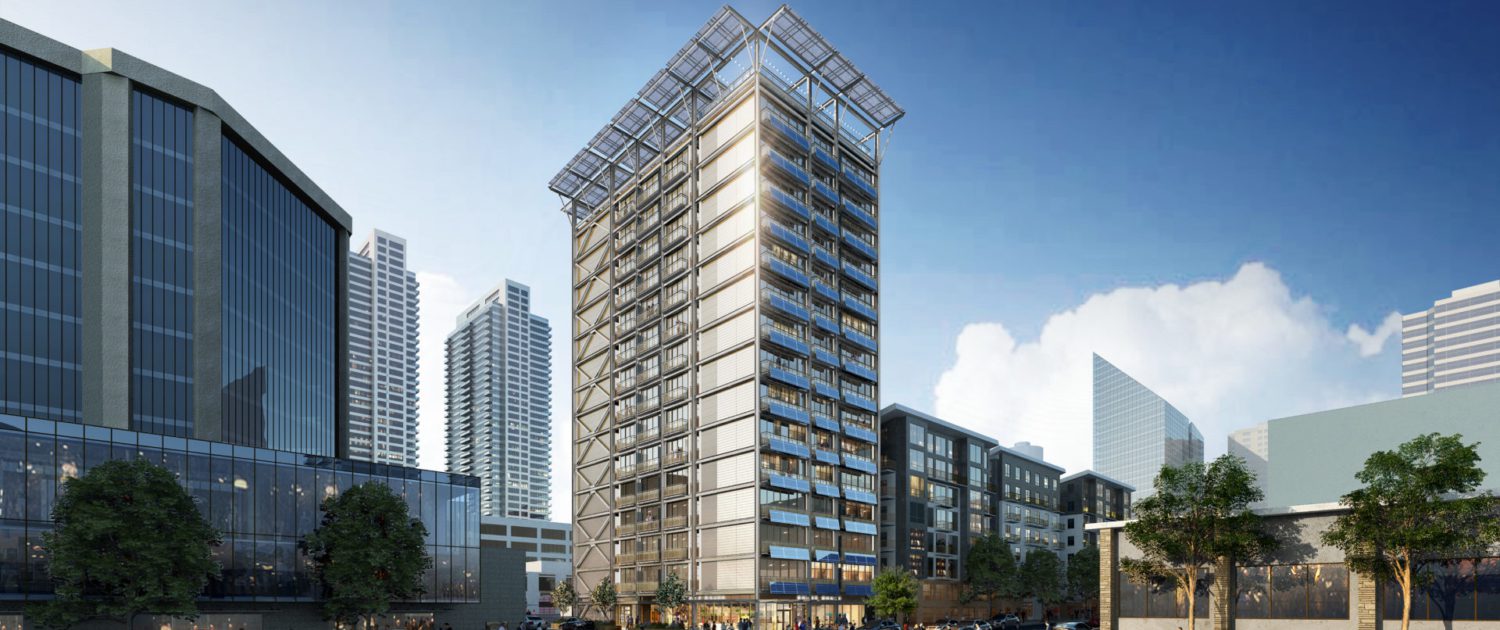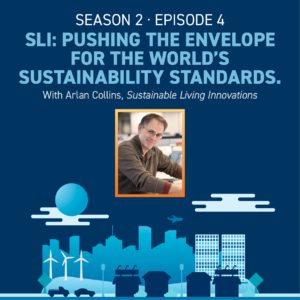303 Battery – The Future of Net Zero
Located in the Belltown neighborhood of Seattle, 303 Battery is a project making big news. Once completed, this apartment building will become the world’s first net-zero high-rise residential building certified by the International Living Future Institute. The building will stand 15 stories tall and have 112 total units, ranging in size from 350–900 square feet. Of the 112 units, five will meet Seattle’s Mandatory Housing Affordability requirements, and 22 will be income and/or rent-restricted. On the corner of Third Avenue, the ground-level floor will house 1,900 square feet of retail and commercial space. The project commenced in early 2021 and will be completed and ready for occupancy in April 2022.
Materials, Future of Prefab, and Project Experience so far
The construction of 303 Battery is a unique process, which includes utilizing a prefabricated modular scheme. Before being delivered to the jobsite, the wall and floor panels will be pre-assembled in Sustainable Living Innovation’s (SLI) manufacturing facility in Tacoma, WA. When the 900+ individual panels are delivered to the site, they will be fully equipped with mechanical equipment, electrical wiring, plumbing, and data infrastructure. Each residential floor will have a standardized layout, making construction much simpler. The prefabricated manufacturing system allows for a much quicker build time and requires fewer workers on-site, ultimately decreasing the project’s carbon footprint. The use of prefabricated panels and a standardized floor plan also means a ten-percent reduction in construction costs and a 20%-30% reduction in operation and maintenance costs once built.
303 Battery will have many sustainable features, which will allow it to reach net-zero emissions. The exterior walls, roof, and balconies will all have integrated solar panels, while 70% of the structural system will be comprised of recycled steel. Other sustainable features include a waste heat recovery system, distributed low-voltage electrical system, regenerative elevator brake, greywater recovery and treatment system, and hydronic radiant heating and cooling. It is projected that 303 Battery will use less than half of the total energy used by a traditional residential building of a similar size. In addition to reaching net-zero emissions, SLI’s technology will also allow the building to reduce water consumption by up to 30%.
The Team and Swinerton’s role
Swinerton is acting as the Super Subcontractor on the project, while SLI is the General Contractor, and Collins Woerman is the Architect. The team has done a great job leading this technically challenging project, mitigating pandemic-related delays, and handling the challenges that a big project in a busy downtown area brings. SLI has had great success utilizing its prefabricated modular scheme in prior projects, and 303 Battery is on its way to doing just the same.




 Dusty Robotics
Dusty Robotics